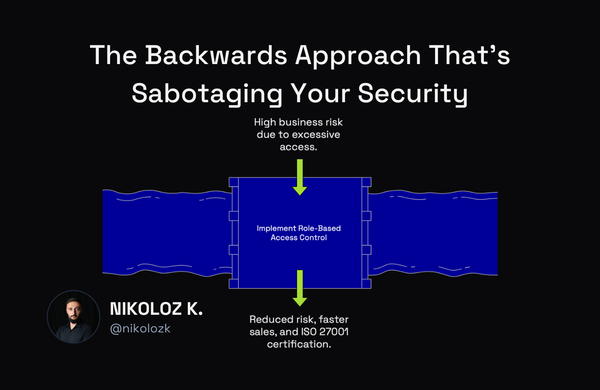VirusTotal Data Leak

Nikoloz Kokhreidze
Unpacking the VirusTotal data leak incident that exposed approximately 5,600 users' details, including employees of intelligence agencies and large companies.

In a recent cybersecurity incident, VirusTotal, a renowned malware scanning platform, experienced a significant data leak. The breach exposed the names and email addresses of approximately 5,600 registered users, sparking serious concerns about user data security on such platforms.
The Incident
The data leak occurred when a VirusTotal employee accidentally uploaded a database containing the names and email addresses of 5,600 registered users to the platform. Although the data was swiftly removed within an hour of its upload, it was downloaded by at least one user. The leaked data reportedly includes information about employees of US and German intelligence agencies, among others.
The Impact
The data leak exposed the details of accounts linked to official U.S. bodies such as the Cyber Command, Department of Justice, Federal Bureau of Investigation (FBI), and the National Security Agency (NSA). Accounts associated with government agencies in Germany, the Netherlands, Taiwan, and the U.K were also affected. Large German companies like Deutsche Bahn, Bundesbank, Allianz, BMW, Mercedes-Benz, and Deutsche Telekom were not spared either.
The Implications
While the leak did not include passwords, the exposed names and email addresses could potentially enable threat actors to launch targeted spear-phishing attacks. The individuals affected are primarily responsible for cybersecurity and malware forensics within their organizations, making them high-value targets.
The incident underscores the risks associated with uploading files to platforms like VirusTotal. Some of the files uploaded by users may contain sensitive data, which could end up in third-party hands if not properly secured.
Key Considerations
While VirusTotal is a valuable tool for analyzing suspicious files and URLs, it's important to understand the potential risks associated with its use. Here are some key considerations:
- Data Sharing: The files you upload to VirusTotal are shared with security companies, professionals, and researchers. This means that sensitive information contained in these files could potentially be accessed by third parties.
- Sensitive Data Exposure: Researchers at SafeBreach have demonstrated that some files uploaded to VirusTotal contain sensitive data, such as credentials stolen by malware.
- Automatic Uploads: The German Federal Office for Information Security (BSI) has warned against the practice of automatically uploading files to VirusTotal.
- Stolen Credentials: A study by SafeBreach revealed that VirusTotal can be used to collect credentials stolen by malware.
In light of this data leak, organizations should reassess their data handling procedures and consider additional security measures. It's also crucial to educate employees about the risks of inadvertent data exposure and the importance of careful data handling.
Conclusion
While platforms like VirusTotal provide valuable services in the fight against malware, they are not immune to security incidents. As cybersecurity professionals, we must remain vigilant and proactive in protecting our data and that of our users. This incident serves as a stark reminder of the importance of robust data security measures and the potential consequences of their absence.


